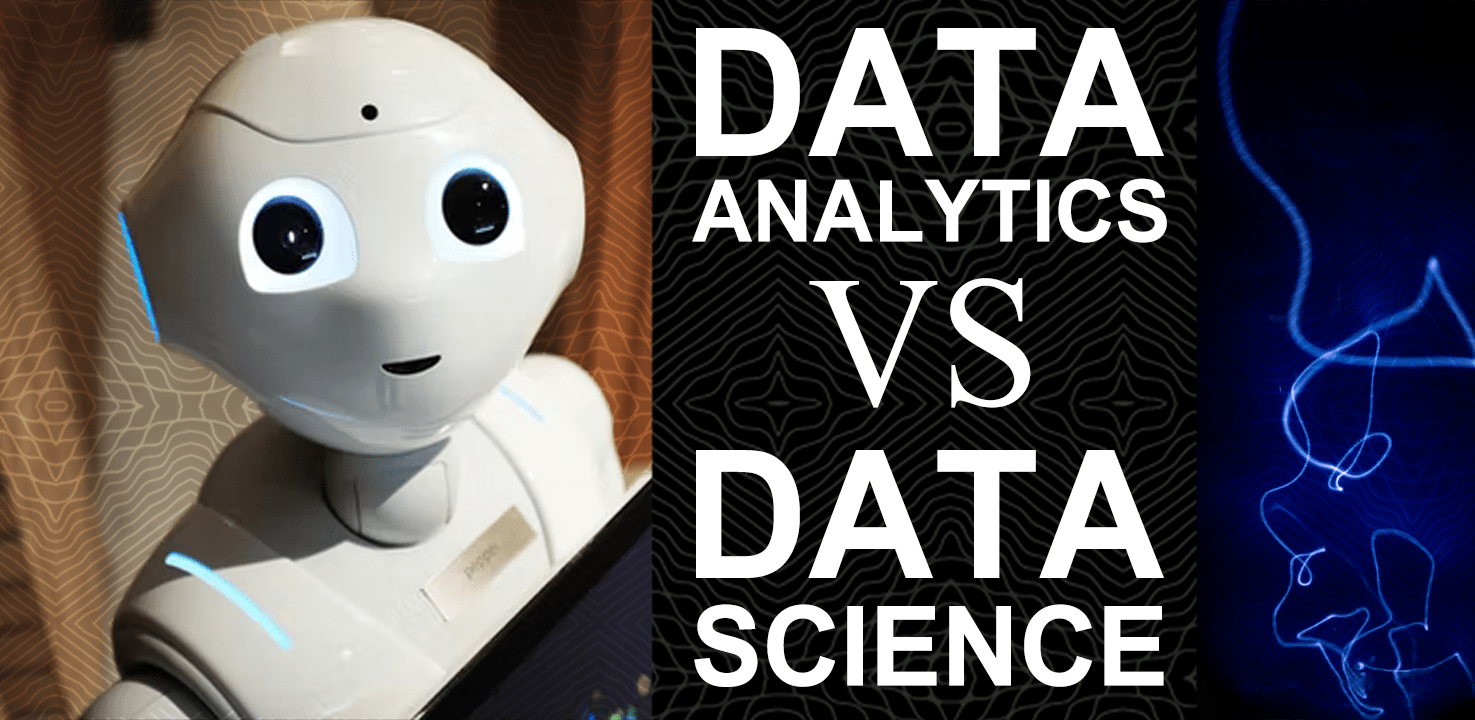Raj Sidhu, Careers Consultant here at the CS, covers the difference between data analytics and data science and how you can work with both for this in-depth post.
With over 2 trillion Google searches in 2021 and an estimated 5 quintillion bytes of data being generated every day (more data than can be stacked in books from Cambridge to the moon), we generate more data than ever before. From the still nascent internet-of-things to the increasingly familiar sight of sportspeople wearing sensors measuring everything from acceleration to impact forces, it’s also clear that data-generation is accelerating across all spheres. And that’s to say nothing of advances in predictive modelling based on large data sets and the use of AI, for example, to best human opponents in Go, or to identify novel protein structures to finding more profitable trading strategies.
Q: So what happens to this vast expanse of data and how does that map to potential career paths?
Let’s start by looking at the differences between Data Analytics and Data Science….
How do data analytics and data science differ?
While it’s not officially codified, it’s broadly accepted that data analytics focuses on answering specific questions from datasets (looking backwards), while data science seeks to find correlations and make predictive models (looking forwards). Whereas the former is characterised by its use of Excel, SQL and Tableau, the latter can be differentiated through its greater use of R, Hadoop, machine learning and use of AI. It is fair to say that data science draws on greater mathematical know-how.
What do I need to get into a data analytics career?
You will likely need to demonstrate your skill and familiarity with Excel, SQL and Tableau at a minimum – while familiarity with Python and Power BI is advantageous. This can come through (i) your degree, (ii) self-learning; whether by Coursera or LinkedIn Learning, for example, or (iii) through work or voluntary experience. You can demonstrate your skills via your own website, GitHub, PDFs of dashboards you’ve created, or even via exercises in the recruitment phase for a job in data analytics. Experience can be gained via projects and you needn’t be the finished article before applying to positions.
Do I need to have done a numerical or mathematical degree to work in Data Analysis?
Absolutely not. While more numerical and mathematical degrees would likely have exposed you to tools used in data analysis, there is nothing stopping you from converting any Cambridge degree into a career in data analysis, via the skills mentioned above. A look at LinkedIn’s Cambridge alumni filter for those active in data analysis careers between 2011 and 2021, show that 14% graduated from disciplines of psychology, political science and literature, for example.
Where are the jobs in data analysis?
Where there is data there are data analytics jobs! Think sports, transport, medicine, finance, brand management, forestry, marketing, PR… in fact you might be challenged to think of a sector that won’t have roles in data analytics. Another look at the Cambridge alumni filter on LinkedIn shows likely names featuring in the top 5 employers of Cambridge alumni working in data analytics: Amazon, Deloitte, Google and Accenture, but data analytics jobs are spread far and wide; from these larger organisations to startups, boutique consultancies offering data analytics and even university careers services! Moreover, roles in data analysis are geographically diverse; the Cambridge alumni filter referenced above, shows 162 alumni data analysts now in Spain, 158 in Germany, 144 in Singapore, 118 in Canada and 94 in India.

Ok so what’s data science all about then? Is it super complicated?
Data science is grounded in mathematical and statistical principles including predictive modelling, machine learning, along with programming. Familiarity with big data tools like Hadoop or Spark, SQL and NoSQL databases like Cassandra and fluency with R, Python and potentially Scala too, are all advantageous. Work in data science can involve data verification, interoperability, designing workflows, gaining insights by using machine learning and algorithmic approaches, as well as using data to make predictive claims.
What do I need to start a career in data science? Do I need a Master’s? Do I need a PhD?
While you don’t need a PhD or Master’s (there are apprentice data scientist positions at British Airways, for example) there are certain types of data science roles where an advanced degree will stand you in good stead, or even be a requirement, e.g Quantitative Analytics roles, typically. Upon sampling a range of job adverts for early-career data scientists, Meta’s minimum qualifications for a research data scientist role, for example, included a “degree in a quantitative field (e.g. computer science, engineering, maths, statistics…)” but their Preferred Qualifications for the same role include an “Advanced degree (Master’s or PhD or equivalent experience)”. It’s clear from the reference to “equivalent experience” that there are other ways to show higher level capabilities.
Further, there are many data science roles that don’t require advanced degrees. British Airways, as previously mentioned, run a data science apprenticeship, while data science job adverts sampled from Mastercard and more, make no explicit mention of degree level requirements.
The bottom line: the access your degree will get you into data science roles will depend on (i) the nature of your degree (ii) the nature of the data science role you’re applying to and (iii) the sector that data science role is situated within.
To get a more nuanced understanding of what specific types of attributes/qualifications data science roles require, we’d recommend using the LinkedIn alumni filter for Cambridge, and looking at a statistically significant number of data scientists’ profiles to get a sense of what qualifications those individuals entered those roles with; giving greater weight to more recent graduates since the labour market evolves over time.
Ok, I think I get it now. So what if I want to learn more about what it means to work in either data analytics or data science – to get a sense of the day to day work, and the working environments etc?
Great question. There’s no substitute for speaking to people doing the roles you are interested in. The alumni filter mentioned above is a great way to initiate conversations, as is Alumni Career Connect. You can send connection requests to those people doing work that sounds attractive to you, and for those that accept your connection request, sending them a short 3-part communication, stating – first – what specifically drew you to them and their work – secondly – drawing a parallel to your personal interest in the field, and – thirdly – closing out with something along the lines of “might there be a way I could get professional exposure to the work you’re doing? I’d love to know more. How might a 10 minute Zoom call work?”. Take care to speak to a representative number of people and follow your curiosity via the questions you ask. You can also find more via YouTube; a search on “careers in data science” for example, reveals diverse and valuable insights.
I’ve heard Bootcamps are a good way to learn about working with data. Is this right?
Bootcamps can help a lot of people, though there’s arguably more value in them once you’ve already embarked on a data science or data analytics career. Since bootcamps vary considerably, it’s typically a better investment to identify what aspects you’d most like to learn more about and to find bootcamps that best match those aspects. There’s also the advantage of potentially having your employer cover some or all of the cost of the bootcamp(s) you may be interested in.
Where can I learn more?
Many resources exist to support you in better understanding what different types of careers exist within data. Some of the sources we recommend include Discover Data Science, along with live career insights from data scientists Emily Graham, Tom Peterken and Joe Harrison in Prospects’ information on data science careers here. Emeritus feature more granular data roles here, as does Northeastern University here. The Cambridge University Data Science Society is also a great way to learn more about working in data as well as getting exposure to data applications more broadly.
Can I speak to the Cambridge Careers Service about careers in data analytics and data science?
Absolutely yes, it’s what we’re here for. You can book a 1-1 appointment here on Handshake to talk over any aspect of what’s mentioned above, or indeed any other career matter. Within the same platform, there’s a terrific jobs board featuring internships and graduate jobs in data from employers specifically looking to attract you!

